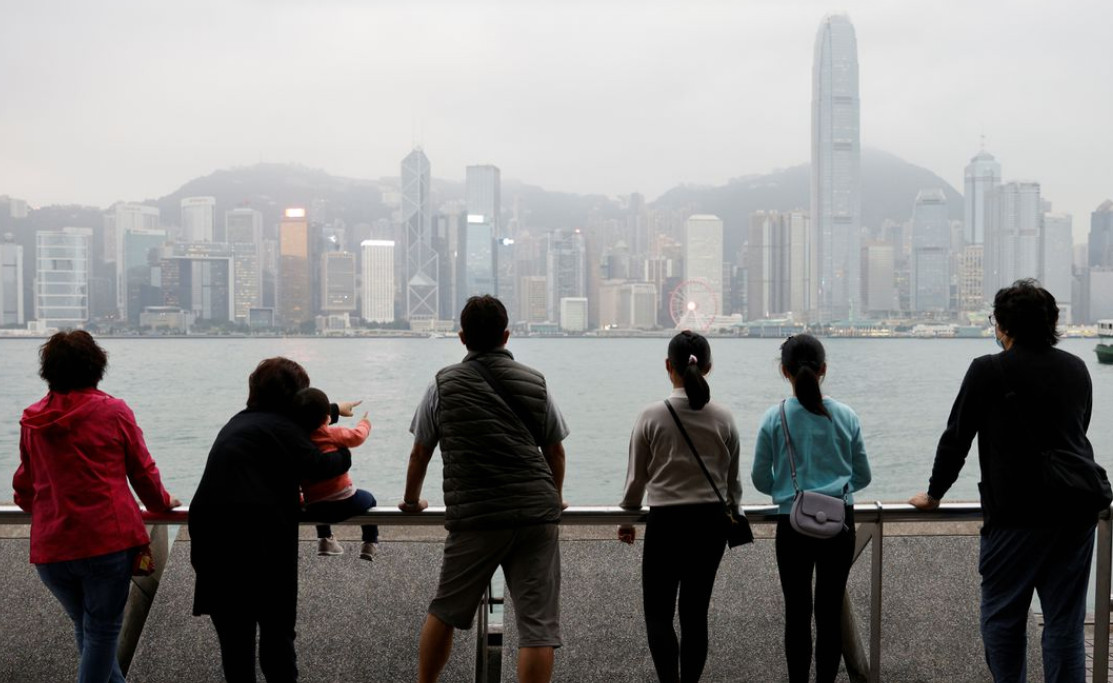The politics of lamentation

The past few years have seen Hong Kong weather some of the most difficult moments in its history – as a city, but also as a collective. From the sociopolitical unrest and large-scale protests, to the polarising and deeply vitriolic politics, to the seismic institutional transformations to the government and political infrastructure of the city, to, finally, the mass exodus we are witnessing today.
Switch on one’s TV (or whatever one decides to watch); flick open one’s Facebook, and it wouldn’t be particularly difficult to spot news that would take a pretty intense and heavy mental toll on one. And indeed, recent events have made it rather difficult for the ordinary Hongkonger to feel hopeful – whether it be the sense that the internationalist and cosmopolitan glow that had once made our city great is ostensibly vanishing, or that the values and norms that some believe typify Hong Kong are gradually dissipating and displaced by a new influx of cultural and social mores. In any case, one thing is clear: this city is experiencing a dearth of hope, and there is a dire need of both reform and restoration – reforms that would tackle the structural issues endemic to the city; restoration, in terms of restoring the mojo to the once-glitzing jewel of the East.
Prior to delving into this, it’s important to set the record straight. That Hong Kong is a part of China is a political given; that Hong Kong must work within the boundaries and baselines of Beijing, is another. These facts are empirically rooted and demonstrably resilient – they would withstand even the test of time, or the most cynical of critics. To set aside these facts, to posture by dancing around reality, may win one applause – but would also render one obsolete, irrelevant, and fundamentally excluded from the engines of change.
And change, we must. We need radical and immediate solutions (though this is by no means easy) to the housing crisis. We also need revamps and overhauls to our education system, which produces heavily over-worked, over-burdened, and burnt-out youth who certainly deserve better. Our industrial policy is non-existent – and that’s an apparent problem, as we clearly could ill-afford to put all our eggs in the basket of finance (which, itself, is by no means sustainable, even with all the fancy, gaudy reinventing the wheel going on elsewhere in the world). Real property cannot and does not bring about trickle-down benefits for the grassroots, who remain shut out of the greasy pole of social mobility. These are all problems that we must address – they may not appeal to the bourgeoisie and the privileged, to those who believe that lofty ideals alone can save the city, or that political realities are an “optional” item for engagement. But these problems must be addressed – through a collective that could bridge polarising and divided halves, as opposed to amplify their differences.
All of this, however, would remain little more than just talk, if there is no action. And action certainly can’t come about when all we hear and grapple with, is lamentation – lamentation, by those who have left the city behind, who eagerly castigate pragmatists and those who stay as “accomplices”; lamentation, by those who find themselves disillusioned with the stagnation to political and socioeconomic reforms, whilst counterparts to the city – in the Mainland or elsewhere – surge ahead. If I may, I would posit that politics in the city is riddled to the brim with a malaise far more malignant than the most cantankerous of politicians or political intrigue; it is, instead, the destructive force of diabolical, apathetic lamentation.
I want to close with this view – this slightly controversial postulate: it is plausibly better to settle for the second-best and bring it to fruition, than to reach for the stars and to burn one’s fingers in doing so. Icarus flew too closely to the Sun; those who opt to play with fire, will inevitably be burnt by its intensity.
-- Contact us at [email protected]
-

Integration of GIS and BIM can drive development of smart city Dr. Winnie Tang
The China Association for Geospatial Industry and Sciences (“the CAGIS”) released the Top Ten Highlights of China's Geographic Information Industry in 2023, which provides much inspiration. The
-

Equip young people for the future Dr. Winnie Tang
In late February, the inaugural flight of an air taxi from Shenzhen Shekou Cruise Homeport to Zhuhai Jiuzhou Port took only 20 minutes with an estimated one-way ticket price of 200 to 300 yuan per
-

Are we raising a generation of leaders, or of followers? Brian YS Wong
The essence of education is defined not by the facts it imparts, but the potential knowledge it inspires students to individually pursue on their own. Put it this way – the ideal form of education
-

The urgent need for reforms to sex education in Hong Kong Sharon Chau
Nearly one in every four university students (23%) in Hong Kong has been sexually harassed, according to a 2019 report published by the Equal Opportunities Commission (EOC). A 2019 study found that
-

STEAM should be linked to real life Dr. Winnie Tang
In the 2017 Policy Address, STEM (science, technology, engineering and mathematics) education was proposed as one of the eight major directions to promote I&T development. Since then, funding has
-
第五屆台北當代藝術博覽會 5月回歸南港展覽館
-
Integration of GIS and BIM can drive development of smart city
-
香港霹靂舞運動員:團隊並肩同行 走上國際舞台
-
THE FUTURE ROCKS打造K11 MUSEA快閃店
-
街頭演唱者:BUSKING歷練場 成就登台大將之風
-
心流藝術家:旋環登上舞台才能真正被看見
-
Russia’s nightmare – loss of Far East
-
尚品~即食花膠靚湯
-
My Brief Remarks – at the HKS China Conference
-
The perils of self-censorship















